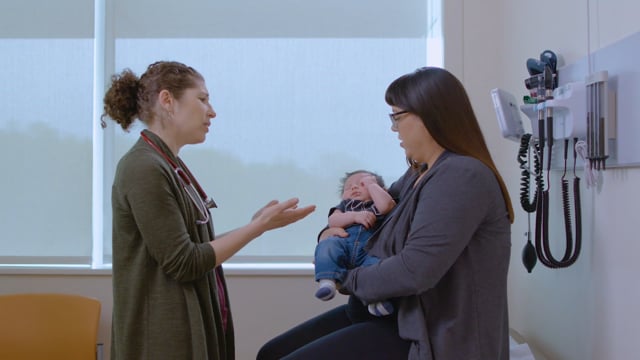Your Child's Vaccines: Hib Vaccine
What Is Hib?
Haemophilus influenzae type b bacteria (Hib) were the leading cause of meningitis in children younger than 5 years old until the Hib vaccine became available. It also used to be a common cause of infections in the ears, lungs, blood, skin, and joints in children.
Hib Immunization Schedule
The Hib vaccine is given by injection at ages:
- 2 months
- 4 months
- 6 months (however, some of the Hib vaccines do not require a dose at 6 months)
- a booster dose at 12–15 months
Kids ages 15 months or older who are receiving the vaccine for the first time only need one dose.
Children ages 12 months to 59 months (almost 5 years old) may need more doses if their immune systems are weakened due to things like asplenia (when the spleen is missing or not working properly), HIV infection, chemotherapy or radiation treatment, or a stem cell transplant.
The vaccine is not routinely recommended for kids older than 5 unless they have a condition that weakens the immune system and have never been vaccinated.
Sometimes doctors give the Hib vaccine in combination with other vaccines, such as DTaP, IPV, or HepB vaccines.
Why Is the Hib Vaccine Recommended?
The vaccine provides long-term protection from Haemophilus influenzae type b. Those who are immunized have protection against Hib meningitis; pneumonia; pericarditis (an infection of the membrane covering the heart); and infections of the blood, bones, and joints caused by the bacteria.
Possible Risks of Hib Immunization
Minor problems — such as redness, swelling, or tenderness where the shot was given — can happen. There is a very small chance of an allergic reaction with any vaccine.
The Hib vaccine only contains a small piece of the germ and so it cannot cause Hib disease.
When to Delay or Avoid Hib Immunization
The vaccine is not recommended if your child:
- is currently sick, although simple colds or other minor illnesses should not prevent immunization
- had a severe allergic reaction (anaphylaxis) to a previous Hib vaccine or has a latex allergy (only for some types of Hib vaccine)
Caring for Your Child After Hib Immunization
The vaccine may cause mild soreness and redness in the area where the shot was given. For pain and fever, check with your doctor to see if you can give either acetaminophen or ibuprofen, and to find out the appropriate dose.
When Should I Call the Doctor?
- Call if you aren't sure whether the vaccine should be postponed or avoided.
- Call if moderate or serious adverse reactions appear after the Hib injection.
-

How Vaccines Help
Vaccines keep millions of people healthy each year by preparing the body to fight illness. Learn how vaccines help and get answers to your biggest questions about vaccines.


